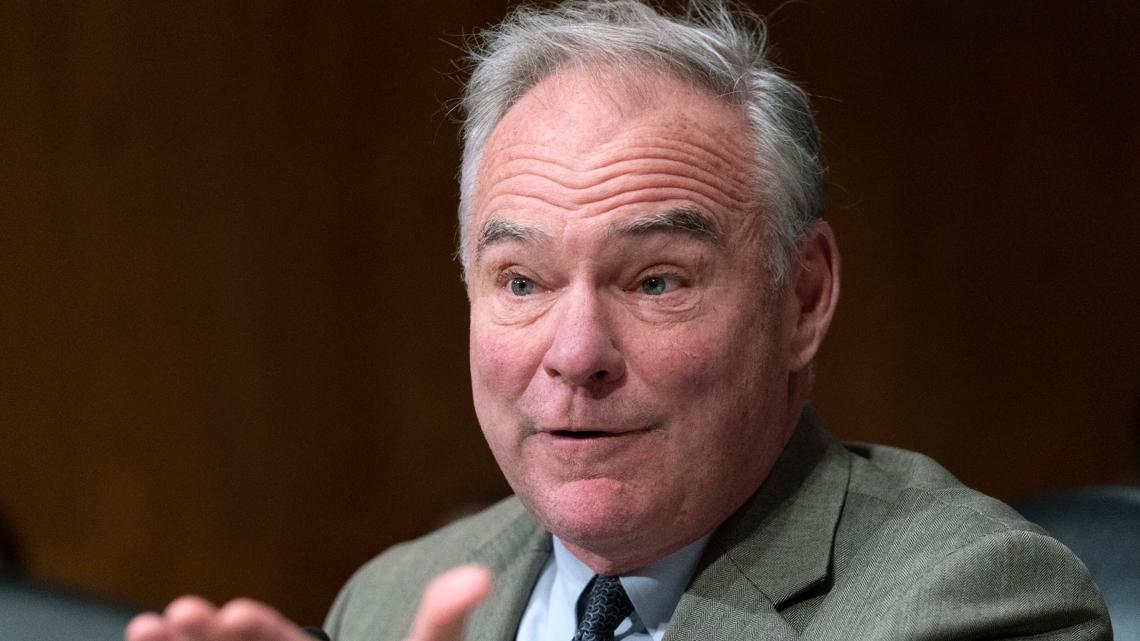An attorney for Zachary Rehl says the case against him should be dismissed if FBI agents improperly accessed his jailhouse communications.
WASHINGTON — A Proud Boys leader accused of helping to plan the attack on the U.S. Capitol Building has asked a judge to throw out the case over messages appearing to show FBI agents accessed jailhouse communications with his former attorney.
Last week, defense attorneys representing five Proud Boys in their ongoing seditious conspiracy trial revealed they’d discovered thousands of hidden rows in a spreadsheet compiled by a key government witness. The revelation prompted a temporary pause in proceedings as prosecutors scrambled to determine whether any of the messages were classified and would need to be “clawed back.” Defense attorneys, meanwhile, argued the messages showed the witness – an FBI agent who reviewed communications about and videos of the Proud Boys’ role on Jan. 6 – was untruthful on the stand.
On Monday, U.S. District Judge Timothy Kelly rejected most of the defense’s efforts to bring the messages into the trial – saying they largely involved statements by other agents about things unrelated to the Proud Boys case. He limited cross-examination about the messages to one appearing to show an agent asking another to remove his name from a report involving a confidential human source. The witness, FBI Special Agent Nicole Miller, explained the message was essentially an administrative request to remove the name of another agent who’d become a supervisor – and was no longer involved in the case – from an email chain. Kelly also suggested a separate motion filed by attorney Roger Roots to suspend all Jan. 6 trials due to footage aired last week by Fox News host Tucker Carlson was unlikely to succeed, although said he would wait for the government’s response before issuing his ruling.
Kelly did leave one issue open, however: Whether FBI agents improperly accessed protected attorney-client communications between defendant Zachary Rehl and his former attorney. The emails were sent between July 15, 2021, and Oct. 15, 2021, while Rehl was being housed at the Federal Detention Center in Philadelphia. At the time, Rehl was being represented by attorney Jonathon Moseley. Rehl dropped Moseley as his lawyer in December 2021 and was assigned attorney Carmen Hernandez as counsel the same month. Moseley was later disbarred in April 2022.
Rehl was the president of the Proud Boys’ Philadelphia chapter on Jan. 6, 2021, and traveled to D.C. with a number of other members of the group. He can be seen on video marching to the Capitol with other Proud Boys on Jan. 6 and the government alleges he can be heard yelling, “Storm the Capitol!” in footage shot near the police barricades outside the building. Rehl was arrested in March 2021 and was one of five Proud Boys indicted on the rarely used seditious conspiracy charge a year later along with former Proud Boys chairman Enrique Tarrio.
On Monday, Hernandez filed a motion to dismiss the indictment against Rehl – arguing the FBI had violated his constitutional rights protected by the 6th Amendment and Due Process Clause of the 14th Amendment. In one email, according to Hernandez, an FBI agent wrote he had “found an email thrad with REHL and his attorney MOSELEY. The attorney raised some interesting points.” In another email, the agent wrote a message “def indicates that they want to go to trial.”
“The principle is well established that surreptitious invasions by the government into meetings between attorneys and their clients or witnesses are forbidden, as is any attempt to stealthily uncover the defense’s trial strategy,” Hernandez wrote.
In a filing Sunday, however, prosecutors argued Rehl waived his attorney-client privilege when he communicated with his former attorney through a monitored communications program at FDC Philadelphia called TRULINCS.
“Inmates consent to monitoring of their use of the TRULINCS and electronic messages systems every time they login to a TRULINCS terminal at the FDC,” prosecutors wrote. “In the banner warning, inmates are explicitly advised that ‘electronic messages and system activity’ are subject to monitoring and retention. Inmates are further specifically advised that electronic messages to and from an attorney are monitored and ‘will not be treated as privileged communications’ and that they consent ‘to such monitoring and information retrieval for law enforcement purposes.’”
Hernandez disputes that Rehl ever consented to having his communications monitored and has asked for an evidentiary hearing to determine whether such a warning was in place if Kelly declines to dismiss the indictment outright. Kelly said an evidentiary hearing might be appropriate, but did not set a date for one on Monday.
While the government is generally prohibited from viewing attorney-client communications, the situation, as prosecutors noted in their filing, has historically been more complicated for defendants in custody. Congress has attempted on several occasions to address this disparity – including in 2020 and again in 2021, when former Rep. Doug Collins (R-Ga.) and now-House Minority Leader Hakeem Jeffries (D-N.Y.) filed a bipartisan bill called the Effective Assistance of Counsel in the Digital Era Act that would have prohibited the Bureau of Prisons from monitoring privileged email communications. That bill passed the U.S. House of Representatives by a 414-11 vote but died in the U.S. Senate after being referred to the Committee on the Judiciary.
We're tracking all of the arrests, charges and investigations into the January 6 assault on the Capitol. Sign up for our Capitol Breach Newsletter here so that you never miss an update.
.png)









 English (US) ·
English (US) ·